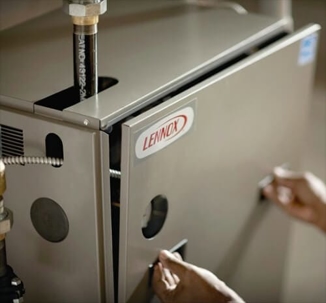 As long as your furnace is working, you might trust that all is well and that it meets current building codes. However, this question becomes important if you decide to sell your home or refinance. In this case, you will probably be required to have a home inspection, and a furnace that is not up to code can be a dealbreaker.
As long as your furnace is working, you might trust that all is well and that it meets current building codes. However, this question becomes important if you decide to sell your home or refinance. In this case, you will probably be required to have a home inspection, and a furnace that is not up to code can be a dealbreaker.Why Your HVAC Might Not Be Up to Code
Many reasons might make your furnace not up to building code standards. The first is that building codes change over time. If your furnace was installed 15 or 20 years ago, building codes have likely changed. Even if it was up to code when it was installed, it might not meet current codes.
If your furnace has become out of code because the standards changed, your system might be “grandfathered.” This means that you might not be required to bring it up to code unless it results in a safety issue. If you plan to sell your home, you might be required to make any necessary changes to bring it up to code.
A second reason why your furnace might be out of code is if you have done any renovation, such as finishing a basement or making changes to your home’s electrical system. If you have made significant repairs in the room where the service is located, it is possible that your furnace no longer has adequate clearance.
If your home is not new and you purchased an older one, the previous owner might have performed repairs that are not up to code. This might mean that you have a building code violation and do not know it. The worst scenario is if the faulty repair caused a safety issue you are unaware of.
The furnace is an area that is examined during a routine building inspection. Code violations are usually caught during this time. In most cases, an inspection is required if you are getting a mortgage, but there are situations where you can buy a home without one. If you did not have a home inspection, it might be a good idea to have one before you put your home on the market so you can take care of any issues before they cause the deal to fail.
Is it Time to Replace Your Furnace?
Many of the more recent changes to building codes involve energy efficiency. If your HVAC is older, it might be time to consider replacing it with one that meets current energy efficiency standards. Not only will this save on your energy bill, but it will also increase your home’s value.
If your air conditioner is older and uses R-22 refrigerant, then it is time for a replacement. This refrigerant, commonly known as Freon, has been linked to ozone depletion. The U.S. EPA banned it and can no longer use it. If your air conditioner still uses this refrigerant, it is a good idea to have it replaced with a newer one that uses a different refrigerant and is up to code.
Replacing your heating and air conditioning with one that meets modern standards not only assures that it is up to code but can also result in considerable energy savings over time. One of the most important factors is choosing a company with technicians who undergo regular training and must meet current installation standards. Unless you are a professional, repairing your furnace is not recommended.
How Can You Tell if Your Furnace Is Out of Code?
Keeping up with changes in building codes is not something that you generally need to worry about as a homeowner. The best way to make sure your HVAC system is up to code is to have regular seasonal maintenance. If anything has changed, they will let you know if it affects your system. Regular maintenance means that you can ensure your HVAC system is in top shape, and you will see that it is up to current codes.
Texas Air Authorities, Inc. in Arlington, TX, can help you ensure that your heating and air conditioning system meets current codes. We offer installation, repair, and maintenance of HVAC systems. We also service heat pumps, provide air purification, and install zone heating systems. You can call us for residential and commercial services.
The post Is Your Furnace Up to Code? appeared first on Texas Air Authorities | www.texasairinc.com.
Texas Air Authorities is the premier choice for HVAC services in Arlington. With a team of highly trained and certified technicians, we have the expertise to handle all of your heating, ventilation, and air conditioning needs. Our commitment to customer satisfaction is unmatched, and we always go above and beyond to ensure that your experience with us is positive. We use only the highest quality parts and equipment to ensure that your HVAC system is running at peak performance. Plus, we offer competitive pricing and flexible scheduling to fit your needs. Choose Texas Air Authorities for all of your HVAC needs in Arlington.
